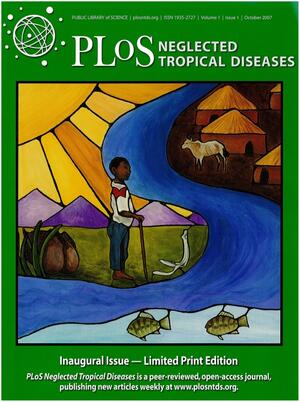
The etiology of childhood pneumonia in the Gambia: Findings from the Pneumonia Etiology Research for Child Health (PERCH) study
Abstract
Background: Pneumonia remains the leading cause of death in young children globally. The changing epidemiology of pneumonia requires up-to-date data to guide both case management and prevention programs. The Gambia study site contributed a high child mortality, high pneumonia incidence, low HIV prevalence, Haemophilus influenzae type b and pneumococcal conjugate vaccines-vaccinated rural West African setting to the Pneumonia Etiology Research for Child Health (PERCH) Study. Methods: The PERCH study was a 7-country case-control study of the etiology of hospitalized severe pneumonia in children 1–59 months of age in low and middle-income countries. Culture and nucleic acid detection methods were used to test nasopharyngeal/oropharyngeal swabs, blood, induced sputum and, in selected cases, lung or pleural fluid aspirates. Etiology was determined by integrating case and control data from multiple specimens using the PERCH integrated analysis based on Bayesian probabilistic methods. Results: At The Gambia study site, 638 cases of World Health Organization-defined severe and very severe pneumonia (286 of which were chest radiograph [CXR]-positive and HIV-negative) and 654 age-frequency matched controls were enrolled. Viral causes predominated overall (viral 58% vs. bacterial 28%), and of CXR-positive cases respiratory syncytial virus (RSV) accounted for 37%, Streptococcus pneumoniae 13% and parainfluenza was responsible for 9%. Nevertheless, among very severe cases bacterial causes dominated (77% bacterial vs. 11% viral), led by S. pneumoniae (41%); Mycobacterium tuberculosis, not included in “bacterial”, accounted for 9%. 93% and 80% of controls ≥1 year of age were, respectively, fully vaccinated for age against Haemophilus influenzae and S. pneumoniae. Conclusions: Viral causes, notably RSV, predominated in The Gambia overall, but bacterial causes dominated the severest cases. Efforts must continue to prevent disease by optimizing access to existing vaccines, and to develop new vaccines, notably against RSV. A continued emphasis on appropriate case management of severe pneumonia remains important.
Citation
Howie, S., Ebruke, B.E., McLellan, J.L., Knoll, M.D., Dione, M.M., Feikin, D.R., Haddix, M., Hammitt, L.L., Machuka, E.M., Murdoch, D.R., O'Brien, K.L., Ofordile, O., Olutunde, O.E., Parker, D., Prosperi, C., Salaudeen, R.A., Shamsul, A., Mackenzie, G., Antonio, M. and Zaman, S. 2021. The etiology of childhood pneumonia in the Gambia: Findings from the Pneumonia Etiology Research for Child Health (PERCH) study. Pediatric Infectious Disease Journal 40(9S): S7–S17.








